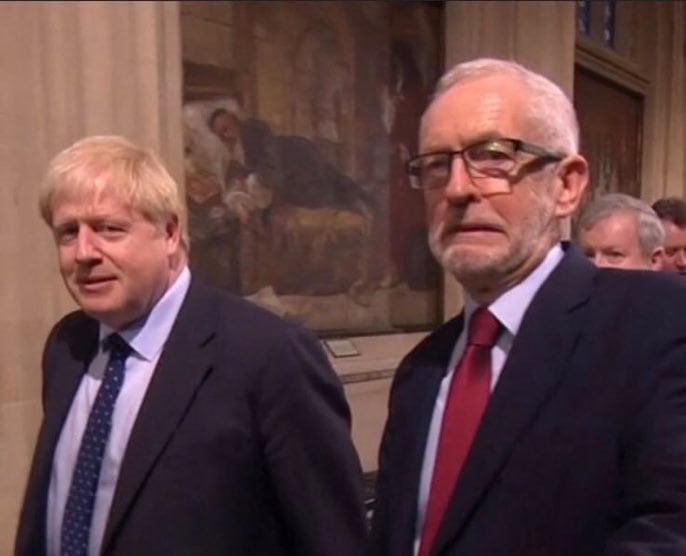The significance of Boris Johnson’s announcement goes well beyond social care.
It sets the tone and the terms for the next general election and signals what type of prime minister he wants to be.
The wager is clear, he believes voters will grudgingly forgive him for breaking not one, but two manifesto commitments if it means a huge increase in spending on the NHS and social care.
By going back on his 2019 guarantee against lifting National Insurance, income tax or VAT, and temporarily scrapping the triple lock for pensions, he is counting on their understanding.
Back then, of course, the prime minister explicitly promised to fix social care without tax rises – so make no mistake, this is a big political gamble.
Boris Johnson has taken much from Labour’s 2019 manifesto and as the data reveals, despite the corporate media lies, the Conservatives borrow a huge amount of money.
The surprise announcement of an increase in dividend tax alongside the National Insurance rise was a clear attempt to try to broaden the tax base while at the same time neutering one of the criticisms of this policy – that it is unfair because working people would foot the bill.
However, whereas Jeremy Corbyn would have made the wealthy pay Boris Johnson is still focusing on normal working people, already stuggling.
But, despite that effort to see off criticism, questions remain. What about wealth taxes? What about wealthy pensioners?
They get the benefit, but they don’t actually pay into the levy – so there is controversy there.
Most significant though is what this all says about the changing face of the Conservative Party under Boris Johnson.
In his statement, the prime minister claimed: “We are the party of the NHS.”
However, no matter what Boris Johnson states it appears those who work in the NHS are much less trusting.
That has always been the strapline for the Labour Party, the issue on which Labour has always won with voters.
The Conservatives’ strapline, by contrast, has always been the claim to be the party of low taxation that is most trusted on the economy. Well, not under Boris Johnson.
He is redrawing the lines – some could argue he’s stealing the clothes from Labour – and wants to go into the next general election as a prime minister who is prepared to break promises and raise taxes to fund public services.
The calculation, I think, is that there is a new appetite for public spending.
The risk for Johnson is that there are many low-tax, small-state Conservatives out there who will be deeply uncomfortable with the shape of the party under his leadership, but those are the terms in which he has decided to lead his government – he has chosen his path.
The real question is: ‘Why are the Conservatives, under Boris Johnson, taking ideas and policies from a man they and their corporate friends spent so much time attacking?
Answering this is the challenge all voters should confront.
Douglas James
PLEASE SUPPORT US FOR JUST £2 A MONTH







